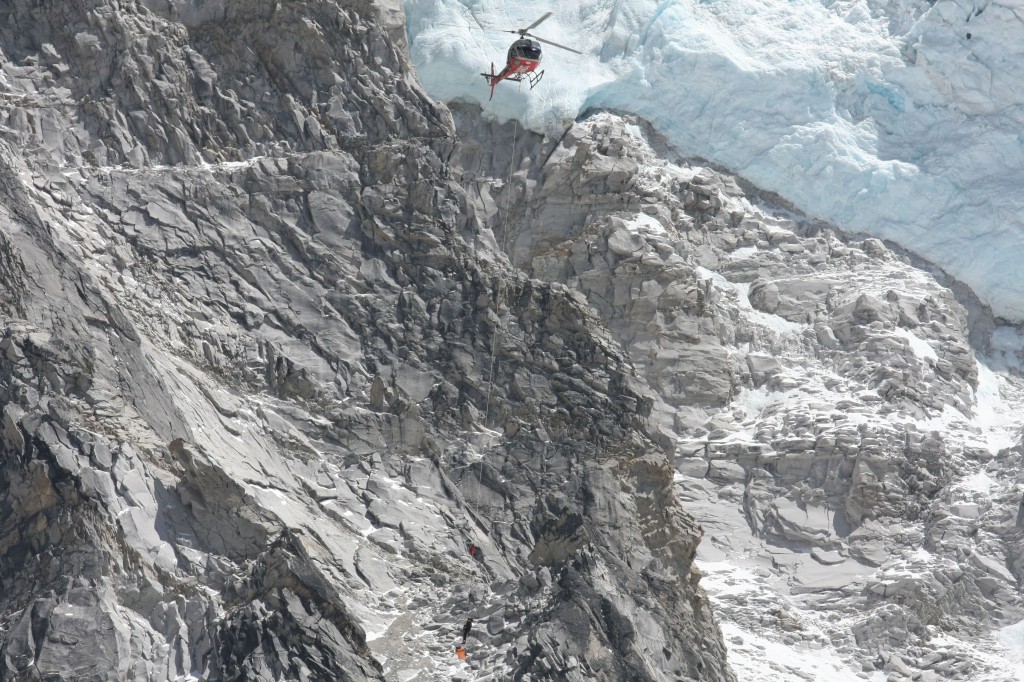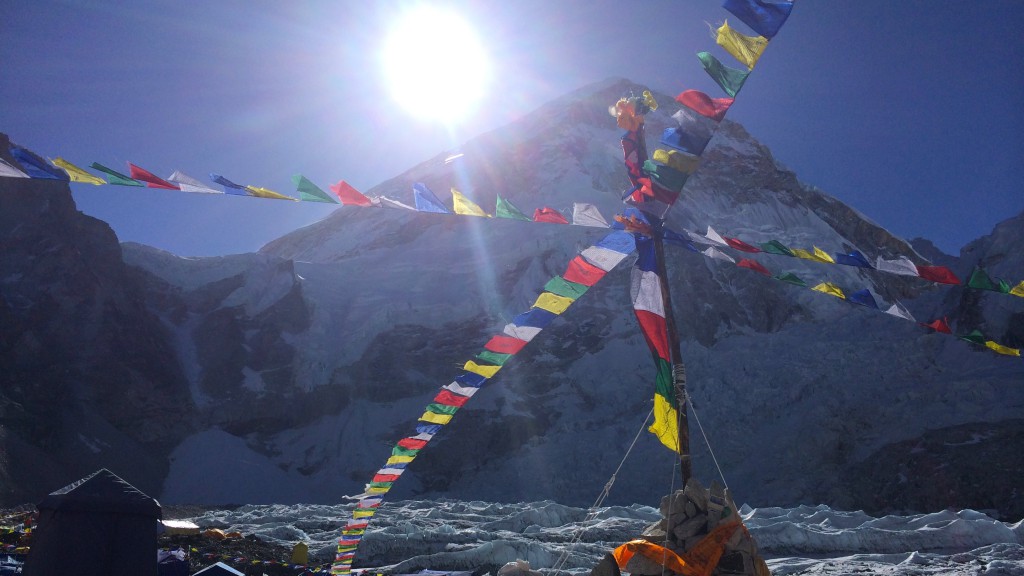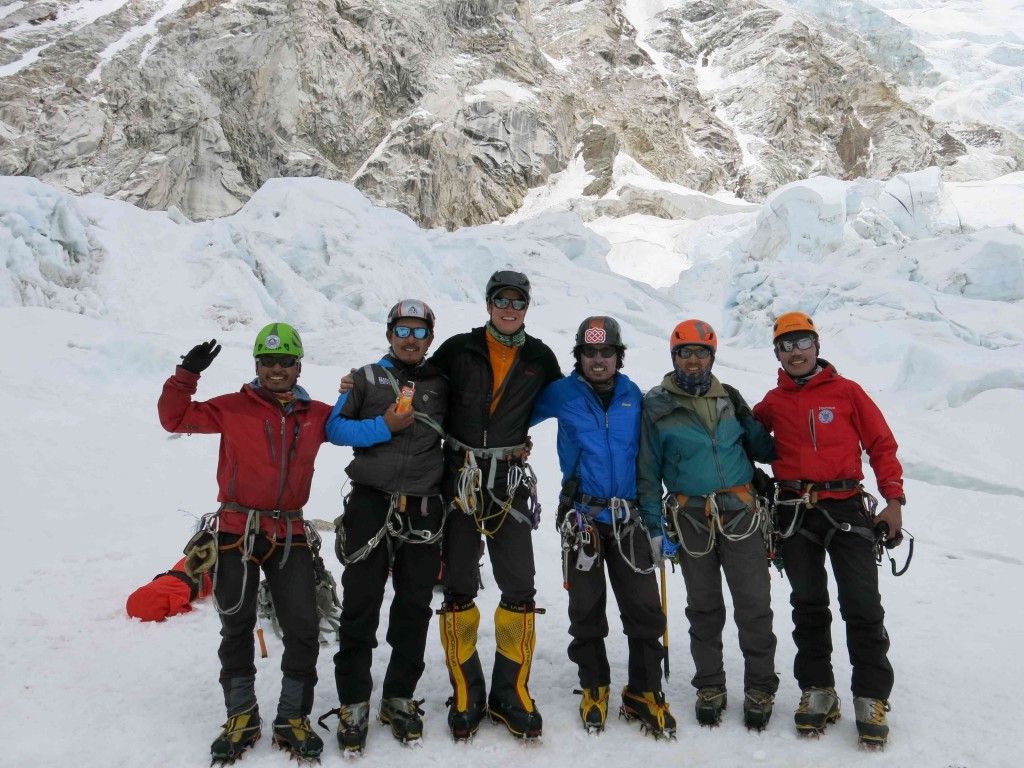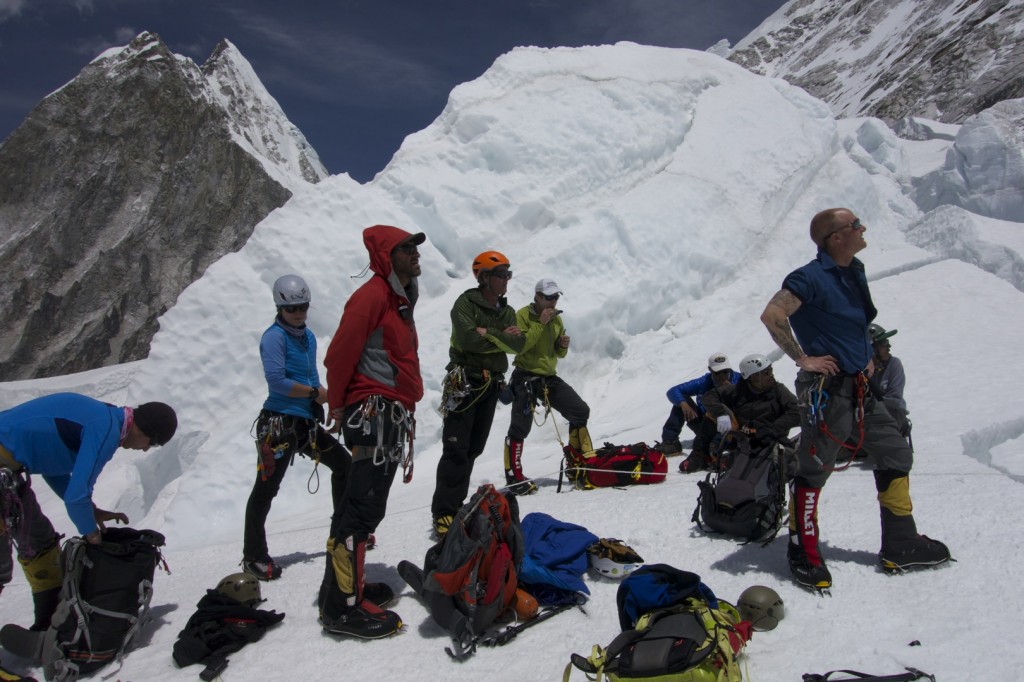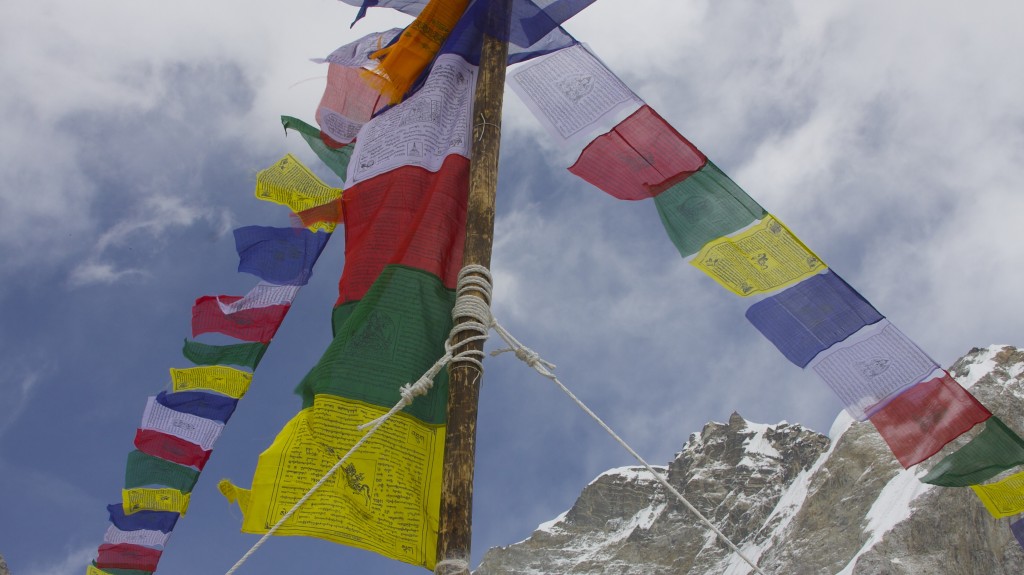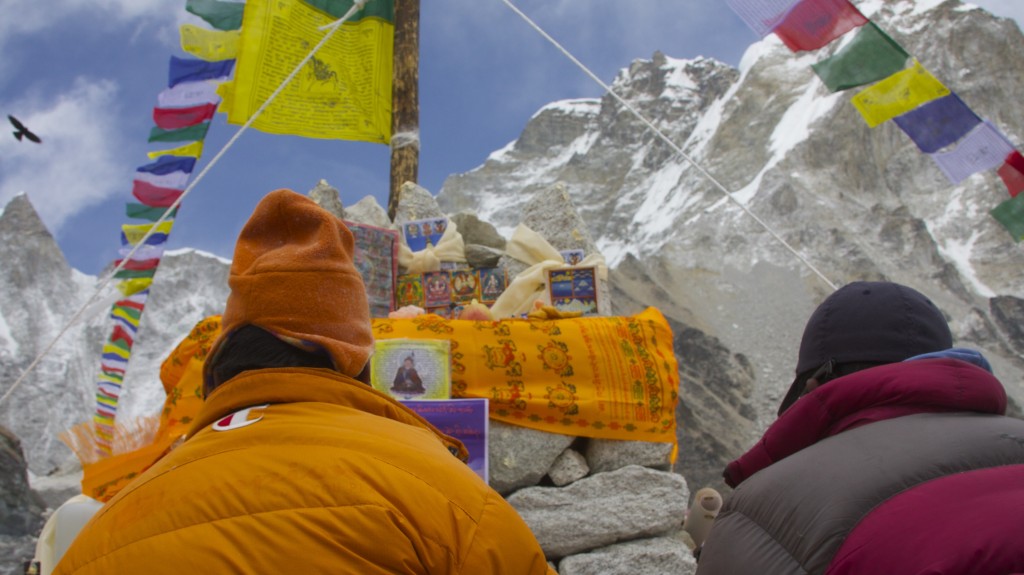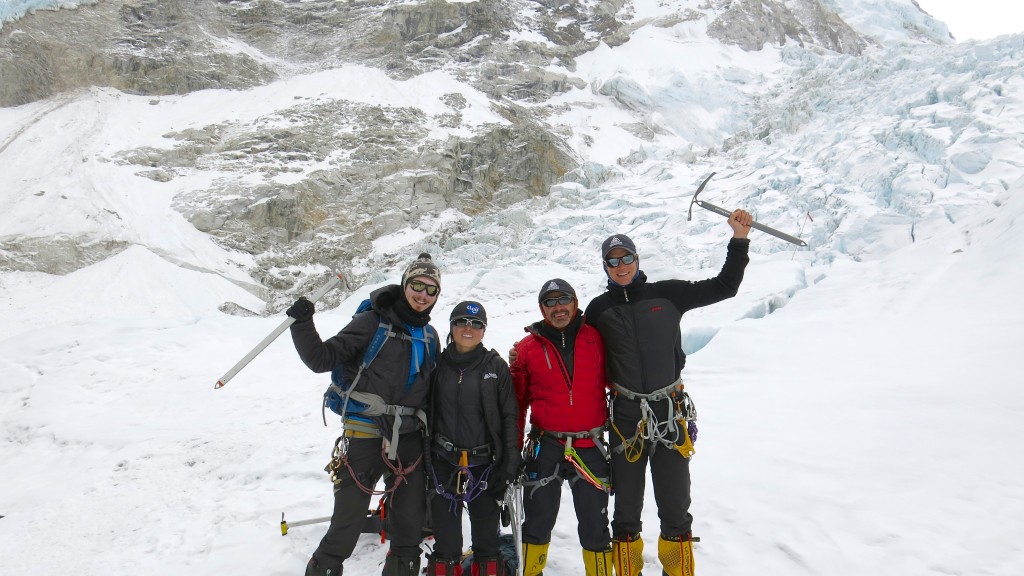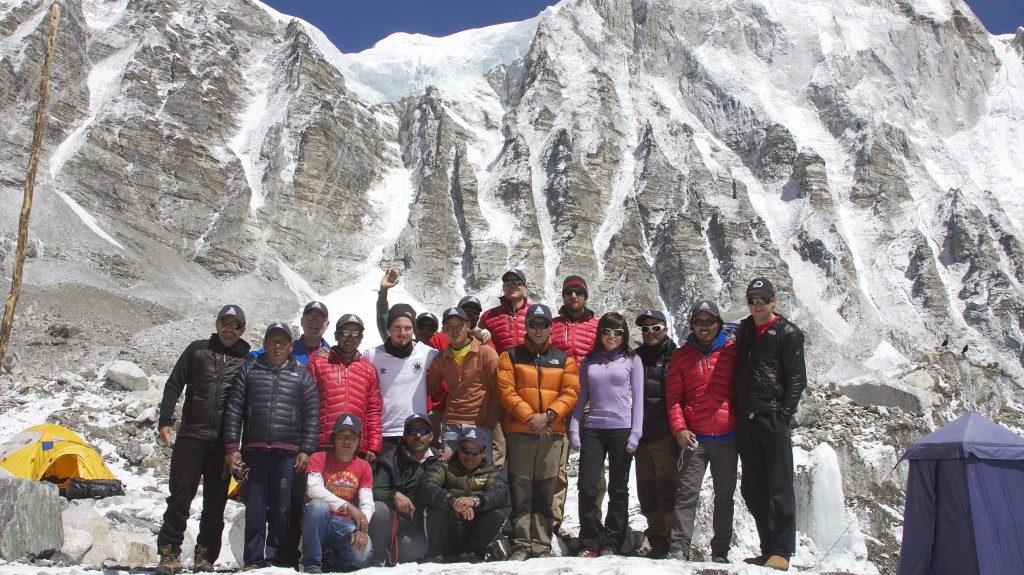Since the April 18th, 2014 tragedy that killed 16 Nepali mountain workers, many people have asked me if I plan to return to Everest. My answer is ‘yes absolutely’, as our team for the 2015 spring season on the Nepal side of Everest is nearly complete at this time. I enjoy the challenge and experience of climbing the mountain, and leading other climbers to the top. I realize this is dangerous, but I believe that this risk can be managed to an acceptable degree. In analyzing the accident on April 18th, 2014, and the subsequent shutdown of the climbing season I have a few thoughts:
- Within hours of the icefall accident the climbing route was moved approximately 100 meters to the center of the icefall, thus avoiding blocks of ice that might fall down from the west shoulder. This was an easy task and should have been done days earlier. There was also a broken ladder that climbers had to use to cross a wide crevasse, and this was very cumbersome. The ladder should have been replaced so that climbers could easily pass through this area. However, this was causing congestion and a crowd of mostly Sherpa climbers were trapped in an exposed area when the ice broke. Next season on Everest (spring 2015) I believe teams will be proactive in maintaining this portion of the climbing route, rather than relying on the SPCC. If climbers cannot easily pass through under the west shoulder I believe they will turn back rather than spend time exposed to this objective hazard. The group hired by the government of Nepal (SPCC Icefall doctors) is supposed to maintain this route. Climbers pay an additional fee on top of the climbing permit for this. In the future our team and others will work with the SPCC to make sure we agree the route is placed correctly, as well in maintaining it as necessary.
- As far as the political and labor situation on Everest is concerned, I believe it will be fine in 2015. I have spoken with many Sherpas since the accident and all of them want to return to climb and support foreign climbers on the peak, time has a way of healing us and rekindling our desires. Many climbers have lost confidence in Nepal, and will go to the North (Tibetan/Chinese) side to climb. Others who prefer to climb on the Nepalese (South) side will wait at least one year to see how things play out. There was a drop in the number of trekkers this autumn season, and the locals are worried this will continue into the next year as a worldwide perception that “Everest is closed” persists. I believe there will be a decrease in the number of climbers in 2015, and ultimately this will affect the families of the Khumbu. Less expeditions means less Sherpas are needed. Generally, a Sherpa usually makes 10 times the average income of a Nepalese person by working 2 months on Everest. This money is used to support his family. Without foreign climbers to support on the mountain, the alternative sources of income for these Sherpa who rely on expedition work is scarce. My personal opinion is that we will return to climb in 2015 and have great success as we have had in the past.

